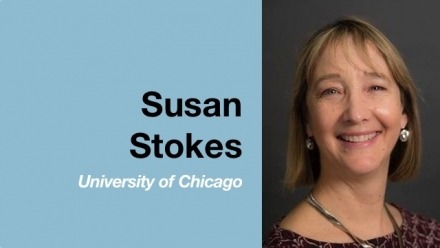Why Bother? Rethinking Participation in Elections and Protests

This talk is based on a book, Why Bother? Rethinking Participation in Elections and Protests, that is forthcoming later this year with Cambridge University Press. It develops and tests a unified theory of people’s participation in collective action in politics: why they turn out to vote and why they join protests. The theory explains real-world patterns that are anomalies for existing theories. Why do vote-suppression efforts sometimes fail? Why does police repression of demonstrators sometimes turn localized protests into massive, national movements? The key insight is that just as people bear costs of participation, so may they bear costs of abstention. Costs of participation are material and cognitive, whereas costs of abstention are intrinsic and psychological – but no less realfor that. The study draws on a wealth of survey data, interviews, and experimental results, from a range of countries including Brazil, Sweden, Turkey, U.K., and the U.S., and explores topics like the malleability of people’s sense of a civic duty to vote and politicians’ and activists’ use of emotions to get people involved.
About the presenter:
Susan Stokes is the Tiffany and Margaret Blake Distinguished Service Professor and Director of the Program on Democracy. Her research has been supported by the National Science Foundation, the Guggenheim Memorial Foundation, the MacArthur Foundation, Fulbright, the American Philosophical Society, and the Russell Sage Foundation. She is a member of the American Academy of Arts and Sciences. Her research interests include democratic theory and how democracy functions in developing societies; distributive politics; and comparative political behavior. Her co-authored book, Brokers, Voters, and Clientelism (Cambridge, 2013) won best-book prizes from the Comparative Politics (Luebbert Prize) and Comparative Democratization sections of APSA. Among her earlier books, Mandates and Democracy: Neoliberalism by Surprise in Latin America (Cambridge, 2001), received prizes from the APSA Comparative Democratization section and from the Society for Comparative Research. Her articles have appeared in journals such as the American Political Science Review, World Politics, and the Latin American Research Review.








